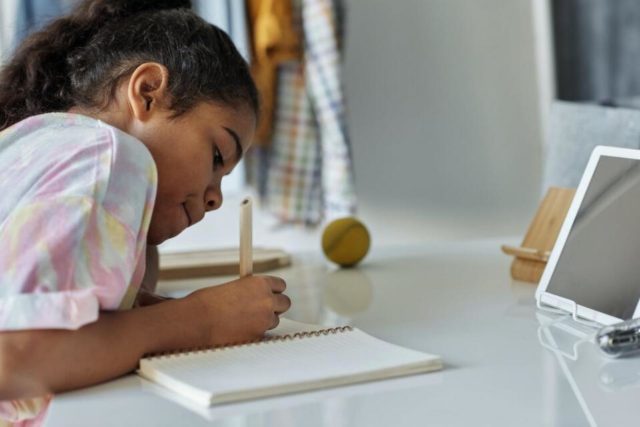A teacher from Prieska pointed out on Monday that online learning has only been beneficial to those pupils who have access to online platforms.
WHILE the majority of parents in South Africa have been forced to home-school their children these past weeks due to the Covid-19 pandemic, parents and teachers in the Northern Cape have had mixed reactions on whether online learning has benefited pupils.
Some schools in the Province have provided pupils with online material and sent schoolwork to them using mobile phones and social media.
A teacher from Prieska pointed out on Monday that online learning has only been beneficial to those pupils who have access to online platforms.
“The majority of residents in the Northern Cape live in impoverished conditions. Many children in this Province come from households where the parents are dependent on seasonal work and social grants. Some children are also left in the care of their grandparents or other family members while their parents search for work in the bigger cities. Having access to a cellphone and data is not a priority to those households,” said the teacher.
“Many people are currently without work due to the coronavirus so buying data and ensuring that your child has access to online learning is the least of the worries in those houses.
“Children are also forced to continue learning on their own but they do not have the help of the teacher to guide them and ensure that they understand the work. Some parents have to fulfil the role of the teacher but even they are often not able to explain the work to their children because they might not be familiar with the subject or they are illiterate. Other parents who have to work during this lockdown simply do not have the time to assist their children with their schoolwork.
“How does one assist that child under these circumstances? How will an illiterate parent assess the progress of their child and their understanding of their schoolwork? That is a huge challenge.
Another Northern Cape teacher said that the coronavirus had highlighted the inequality in the country’s education system.
“We have former Model C schools and private schools on the one hand, versus our mainstream schools. There is even great inequality in mainstream schools where one finds that rural schools do not have the resources or basic services of a school located in a city. There are so many schools that do not have access to water or sanitation. Some pupils are forced to share textbooks. Schools are encouraged to do online learning but how does a teacher send schoolwork, using social media, when the school itself does not even have a computer? Other teachers are making videos to interact and explain the work to their pupils. There are many teachers who do have access to such resources. What does it help if some pupils get the work and others get left behind? Both the teacher and the pupil may need to be educated on how to incorporate technology with learning,” she said.
A Grade R teacher in Kimberley said it was crucial that pupils grasped the schoolwork from the first term.
“It is very challenging to teach the children during these times, however, we have to ensure that we keep stimulating their minds. We sent schoolwork and tasks to pupils to complete to ensure they do not fall behind. However, there is nothing that can replace physical learning. In a classroom one can easily identify and assist a pupil who may be experiencing challenges in learning. The distance learning does not affect the teacher as greatly as it does the parent and pupil who now have to work independently. The first phase of school is vital now because the children have to move to the next phase.
“With our online work, we mostly did revision to assess whether the pupil understood the work from the first term. We cannot move onto new work if the pupil does not understand that work. That is where the importance of physical classroom teaching plays an important role as most parents will find it challenging to teach their children to write and read. Grade R is an interactive grade and is filled with activities. We try to make learning easy and enjoyable for both parents and pupils, however it is very important that the pupil gets the starting block of their schooling career correct,” she said.
Some parents indicated that they have a new respect for teachers.
A parent in Kimberley said she was forced to assist both her six-year-old son, who is in Grade R, and her 14-year-old son, who is Grade 8.
“Online learning with a Grade R child is impossible. One has to bear in mind that they cannot read and the fundamental building blocks of writing is being taught in this grade. One realises that the home is not a place for constructive learning as they get easily distracted. Initially, I had no routine with my son and the work kept piling up. There are no school hours for certain subjects. With my Grade 8 son, all his teachers would send work for his different subjects. The WhatsApp chat groups were a mess as every child wanted to ask the teacher something. Teachers, on the other hand, are in a hurry to get work done for the quarter and the children are bombarded with schoolwork for each subject.
“I let my son watch the television programmes as a means to assist him, however the work is just too much and there is not much time spent on each subject. For my son, the interaction and immediate attention he would have received from his teacher in class, is now lost.”
The Department of Education indicated that the Minister of Basic Education, Angie Motshekga, would, during a press conference scheduled for Tuesday afternoon, give an update on the preparations for the reopening of schools.








